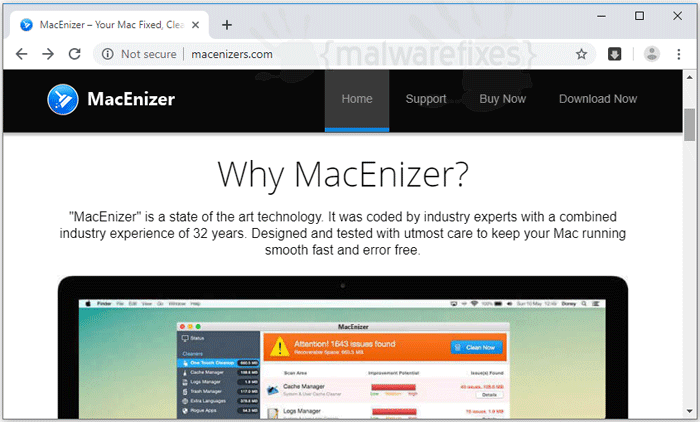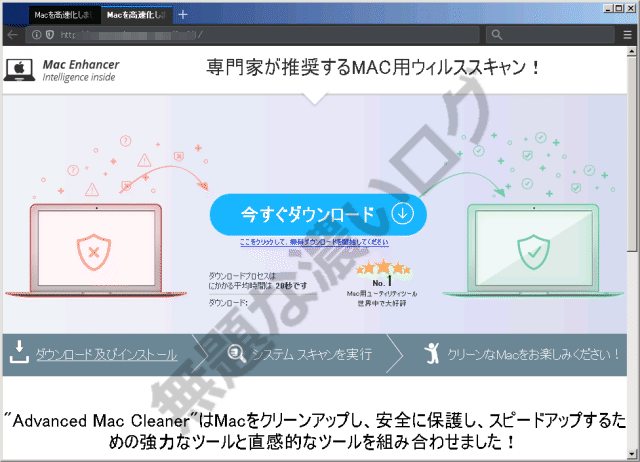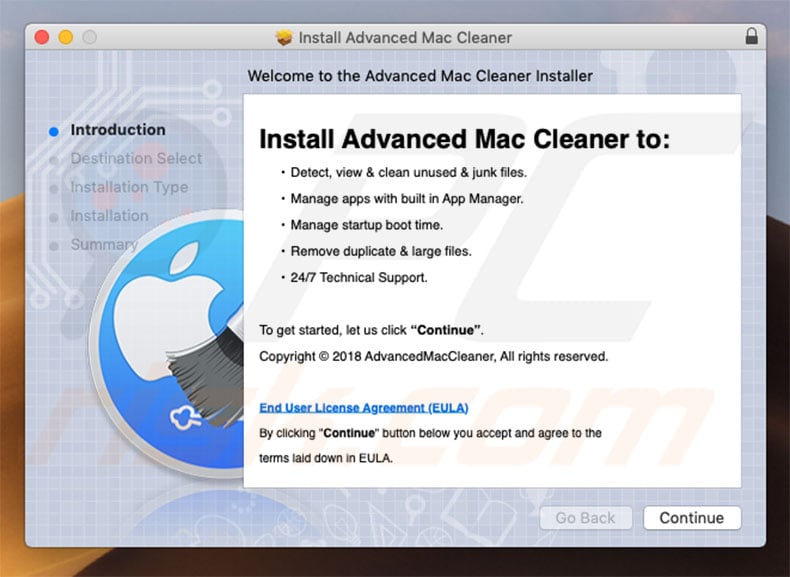

- #Advanced mac cleaner is it a malware install
- #Advanced mac cleaner is it a malware code
- #Advanced mac cleaner is it a malware download
Notably, as of the time of this writing, no transactions have occurred to the attacker’s Bitcoin or Ethereum/Tether addresses since the malware campaign is believed to have started in June (the last transactions were in May), and the attacker’s Litecoin address seems to have never been used.Īnd just in case the victim doesn’t use Safari, XCSSET also has the capability of installing Trojanized versions of many other Mac browsers: Google Chrome, Mozilla Firefox, Microsoft Edge, Brave, Opera, 360 (a Chinese browser), and Yandex (a Russian browser). The Trojanized version of Safari also has the capability of replacing Bitcoin (BTC), Ethereum (ETH), Litecoin (LTC), and Tether (USDT) cryptocurrency addresses in Web pages, with the intent of stealing money.
#Advanced mac cleaner is it a malware download
A couple of interesting examples coded into the malware include: attempting to steal credit card data when a victim accesses the Apple Store, and replacing the Chrome download link so the victim will receive an older (and thus insecure) version. This gives the attacker carte blanche they can do essentially anything they want with your Safari browsing experience.
#Advanced mac cleaner is it a malware code
XCSSET attempts to steal passwords from victims’ Apple ID, Google, Paypal, and other accounts.Īll of these attempts at credential stealing are facilitated by installing a Trojanized version of Safari that injects malicious code from an attacker-controlled server into pages the victim visits.
#Advanced mac cleaner is it a malware install
If a developer’s users were to get infected, this would be a huge boon for the malware maker, because they would have many more computers to exploit, and they could leverage XCSSET’s backdoor and browser hijacking capabilities to install other malware on infected systems. If a developer’s Mac is infected with XCSSET, the infection can spread to any Mac app the developer creates-which in a sense can make the developer an unknowing distributor of XCSSET malware. While it is not entirely clear why developers are being targeted, one plausible theory is that it may be an attempt at wider distribution of the malware. An Xcode project infected by XCSSET can lead to malicious code being executed on a developer’s computer. One of the most interesting things about XCSSET is that its main target seems to be developers who use Apple’s Xcode app. “XCSSET” (which Intego VirusBarrier detects as OSX/XCSSET.A) is recently discovered Mac malware with a variety of capabilities and some unique traits. What does XCSSET malware do? How is it unique? This means that you don’t necessarily have to be a developer-and you don’t need to have Xcode installed-to get infected.

However, it’s important to note that XCSSET can also spread via maliciously modified apps. If an XCSSET-infected Xcode project is opened and built, malicious code will run on the developer’s Mac. The primary method of infection is user-downloaded Xcode projects.

This unique malware, which seems to primarily target app developers (but can infect any Mac user), has a wide range of abilities. Over the past two weeks, Intego has been actively investigating XCSSET (aka MACOS.2070d41) - an intriguing new Mac malware specimen. Malware Mac malware exposed: XCSSET, an advanced new threat


 0 kommentar(er)
0 kommentar(er)
